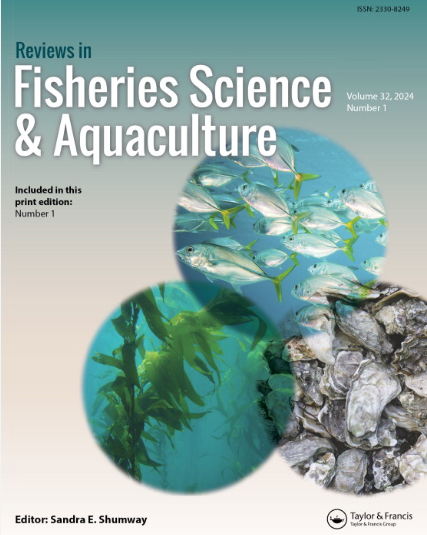一个向政策制定者宣扬虚假二分法的钓鱼故事:这不是淡水与海洋水产养殖
IF 5.3
1区 农林科学
Q1 FISHERIES
引用次数: 9
摘要
摘要Belton等人最近发表的一篇文章提出了决策者和科学家在水产养殖的未来需要考虑的问题,并就世界上水产养殖贡献最大的系统和地区的政策和投资提出了建议。Belton等人采用“我们与他们”的方法,通过经济、生计选择和水盐度来区分水产养殖。他们得出的结论是,“近海环境中的海洋鳍鱼养殖将面临经济、生物物理和技术限制,这些限制阻碍了其增长,并使其无法为全球粮食和营养安全做出重大贡献。”他们认为,陆地淡水养殖是比海洋/海洋养殖更有利的生产战略;他们不同意政府和非政府组织在现有海洋用途基础上增加新水产养殖的空间规划工作;他们主张为野生渔业开放公地,而不是水产养殖;他们反对“公海”水产养殖和其他类型的工业、资本密集型、“肉食性”鱼类养殖。他们诋毁海洋水产养殖,而不是解释所有水产养殖部门如何比几乎所有陆地动物蛋白替代品更高效、更可持续地发展食品。作为一个从事海洋水产养殖的跨学科科学家小组,我们不同意Belton等人提出的有偏见的分析和主张。海洋水产养殖正在发展,已经为世界各地的经济和人民做出了重大贡献。Belton等人提出的担忧都不是新的,但他们关于在海洋中养殖鱼类不能“滋养世界”的明确声明没有切中要害,决策者遵循他们错误的建议是错误的。本文章由计算机程序翻译,如有差异,请以英文原文为准。
A Fishy Story Promoting a False Dichotomy to Policy-Makers: It Is Not Freshwater vs. Marine Aquaculture
Abstract A recent publication by Belton et al. raises points for policy-makers and scientists to consider with respect to the future of aquaculture making recommendations on policies and investments in systems and areas of the world where aquaculture can contribute most. Belton et al. take an ‘us versus them’ approach separating aquaculture by economics, livelihood choices, and water salinity. They conclude “that marine finfish aquaculture in offshore environments will confront economic, biophysical, and technological limitations that hinder its growth and prevent it from contributing significantly to global food and nutrition security.” They argue that land-based freshwater aquaculture is a more favorable production strategy than ocean/marine aquaculture; they disagree with government and non-governmental organizations spatial planning efforts that add new aquaculture to existing ocean uses; they advocate for open commons for wild fisheries as opposed to aquaculture; and they oppose ‘open ocean’ aquaculture and other types of industrial, capital-intensive, ‘carnivorous’ fish aquaculture. They discredit marine aquaculture rather than explain how all aquaculture sectors are significantly more efficient and sustainable for the future of food than nearly all land-based animal protein alternatives. As an interdisciplinary group of scientists who work in marine aquaculture, we disagree with both the biased analyses and the advocacy presented by Belton et al. Marine aquaculture is growing and is already making a significant contribution to economies and peoples worldwide. None of the concerns Belton et al. raise are new, but their stark statement that farming fish in the sea cannot ‘nourish the world’ misses the mark, and policy-makers would be wrong to follow their misinformed recommendations.
求助全文
通过发布文献求助,成功后即可免费获取论文全文。
去求助
来源期刊

Reviews in Fisheries Science & Aquaculture
FISHERIES-
CiteScore
25.20
自引率
0.90%
发文量
19
期刊介绍:
Reviews in Fisheries Science & Aquaculture provides an important forum for the publication of up-to-date reviews covering a broad range of subject areas including management, aquaculture, taxonomy, behavior, stock identification, genetics, nutrition, and physiology. Issues concerning finfish and aquatic invertebrates prized for their economic or recreational importance, their value as indicators of environmental health, or their natural beauty are addressed. An important resource that keeps you apprised of the latest changes in the field, each issue of Reviews in Fisheries Science & Aquaculture presents useful information to fisheries and aquaculture scientists in academia, state and federal natural resources agencies, and the private sector.
 求助内容:
求助内容: 应助结果提醒方式:
应助结果提醒方式:


